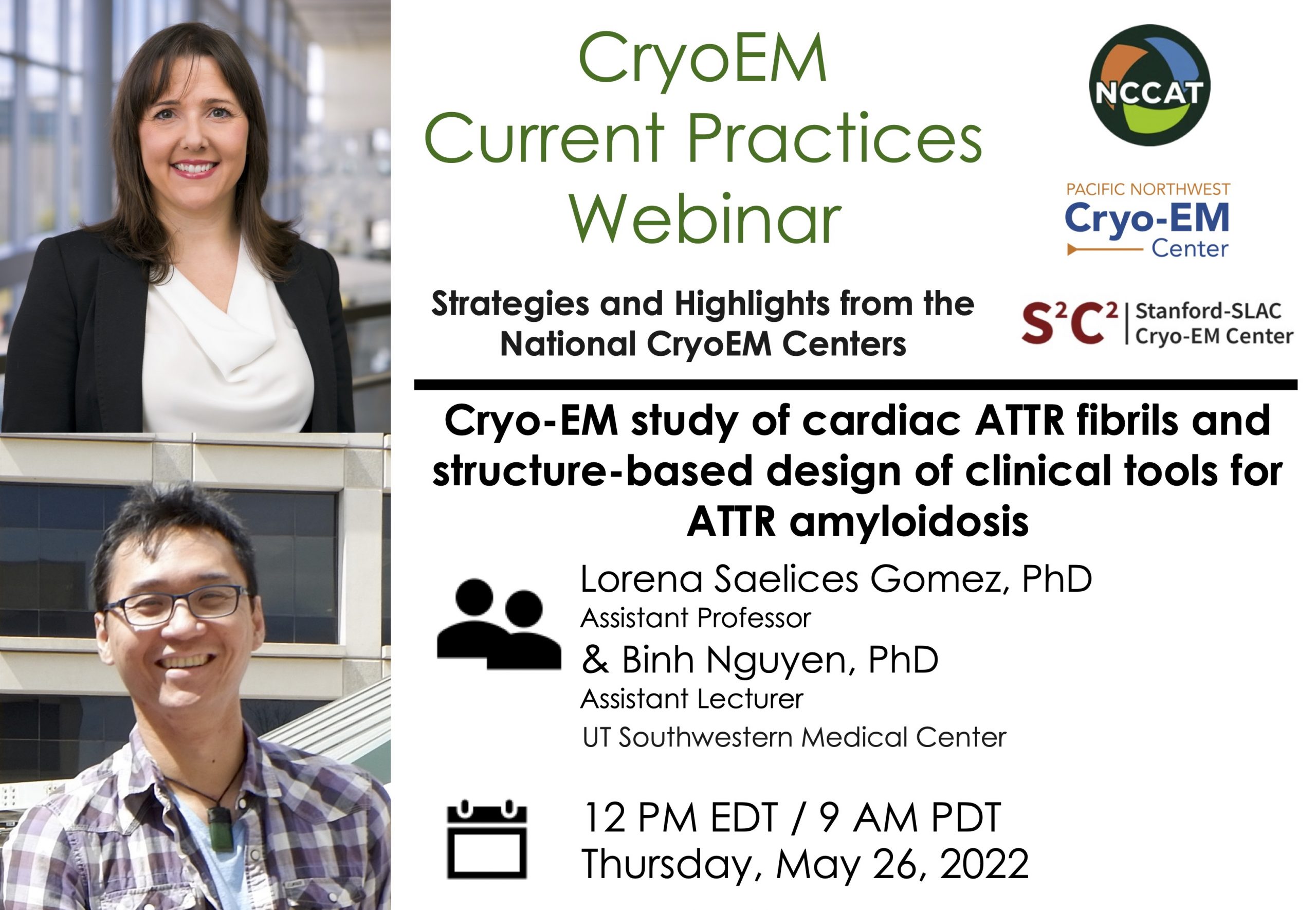The next installment of the monthly methods-focused webinar series hosted by the National Center for CryoEM Access and Training (NCCAT), the Pacific Northwest Center for CryoEM (PNCC), and the Stanford-SLAC CryoEM Center (S2C2) will be held on
Thursday May 26, 2022 at 12 PM eastern / 9 AM pacific time
Lorena Saelices Gomez, Assistant Professor & Binh Nguyen, Assistant Lecturer, Center for Alzheimer’s and Neurodegenerative Diseases, Department of Biophysics, UT Southwestern Medical Center
will present:
Cryo-EM study of cardiac ATTR fibrils and structure-based design of clinical tools for ATTR amyloidosis
Talk Abstract: Cryo-electron microscopy (cryo-EM) has become the state-of-the-art technology to study the structures of helical assemblies like amyloid fibrils. The accumulation of these proteinaceous fibrils is associated with more than twenty degenerative diseases, one of which is known as ATTR amyloidosis. In ATTR amyloidosis, because of a mutation or because of aging, transthyretin aggregates into beta-rich elongated fibrils that accumulate in a variety of tissues, leading to organ failure and death. However, and although all patients accumulate transthyretin fibrils, the affected tissues and phenotypes differ depending on the case and little is known about the causes of this heterogeneous presentation. We set up to study whether this phenomenon is related with the structure of the amyloid fibrils and determined the structures of ATTR fibrils extracted from the heart of 6 patients. ATTR-wild-type fibrils present a well-defined structure core that includes two separate protein fragments (Pro11-Lys35 and Gly57-Thr123). Although overall similar to these structures, we found that hereditary ATTR mutations perturb the structure locally at the site of the mutation, as indicated by partial density and low local resolution. The association of these findings to clinical presentation is yet to be defined in a larger cohort of samples. The molecular understanding of these ATTR fibrils will enable the design of structure-based clinical tools such as polymerization inhibitors.

